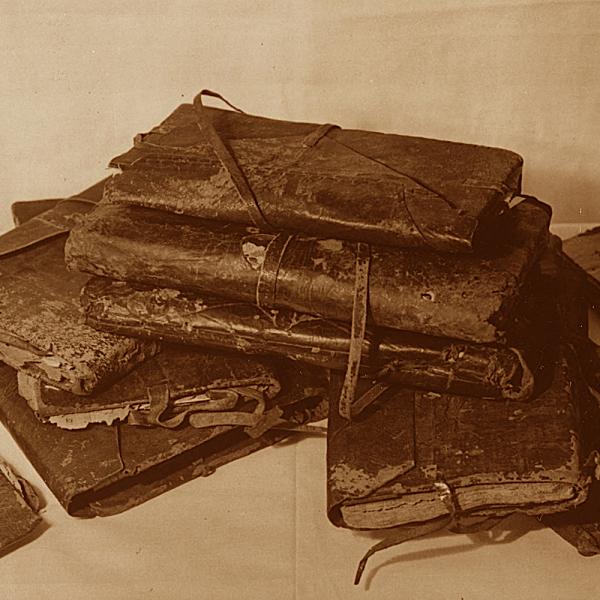Fall 2015 Fellowship
In India, over the past year, Muslims and persons of low caste have been repeatedly attacked on suspicion of slaughtering cows. “Cow protection,” or efforts to prevent cow-killing, has a long history in Indian politics. Yet there is much we don’t know about this history. With support from an AIIS/NEH fellowship, Cassie Adcock spent the Fall 2015 semester doing research for her new book about cow protection in north India between 1881 and 1969.
Identifying cow protection with demands for a legal ban on cow-slaughter (and the violence that has accompanied those demands), scholars have concluded that the colonial state remained aloof from the politics of cow protection. Adcock’s research sheds light on a less-studied aspect of cow protectionist activities: gaushala cattle shelter institutions. By showing that gaushala institutions were entangled with state initiatives beginning in the colonial period, Adcock’s research changes the story of the relationship between cow protection and the secular state in India.
How has the connection between cow protectionist gaushala institutions and the state been justified? Cow protection is generally regarded as a political outgrowth of Hindu religious reverence for the “sacred cow”. But cow protectionists have regularly cited scientific and official literature to support their arguments about the importance of draught bullocks for Indian agriculture, the value of cattle manure for maintaining soil fertility, and the need to direct state efforts toward the preservation and improvement of cattle breeds in India. If scholars have often overlooked this overtly “secular” line of cow protectionist argument, historically it has allowed alliances to form between the state and cow protectionist institutions in the cause of agricultural development.
In order to document the connection between gaushala institutions and the state, Prof. Adcock visited the National Archives of India in New Delhi. She also travelled to the city of Lucknow, which is home to the Uttar Pradesh State Archives. There, Prof. Adcock spent her days sifting through the official files of the colonial government in U.P. — with help from the archivist and other staff. She was also able to look at selected records about government aid to gaushalas after independence, housed at the U.P. Department of Animal Husbandry.
Prof. Adcock also travelled to several historic gaushala cow-shelter institutions in search of a different kind of historical materials — cow protectionist pamphlet literature in the Hindi language. These historic gaushalas were established in the late 19th and early 20th centuries, and have been maintained by a combination of state funds and charitable donations for many decades. Some gaushalas have begun to supplement their income by selling products made from cow-urine, which they consider to have purifying, medicinal properties.
Spring 2016 Fellowship & Summer Conference
On the hunt for the scientific and official literature cited by cow protectionists over the last century and more, Adcock visited the library of the Indian Agricultural Research Institute in Delhi (Pusa), or IARI — formerly the Imperial Agricultural Research Institute. She also made use of a goldmine of such literature at the Library of Congress in Washington D.C., where she spent the Spring semester with support from a Kluge Fellowship.
What does cow protectionists’ history of “secular” argumentation have to teach us about the violence against Muslims and low-castes in India today? In 1958, the Indian Supreme Court cited this same scientific, official literature when it ruled that state-level laws banning cow-slaughter were secular and constitutional. Those anti-slaughter laws, recently revised and strengthened, form the backdrop for the recent spate of cow-protection-related violence. She discussed these connections and what they teach us about secularism in India for a talk titled “Secularism as a Matter of Fact” which she gave at the "A Postsecular Age?" Conference at Oxford University in July.




